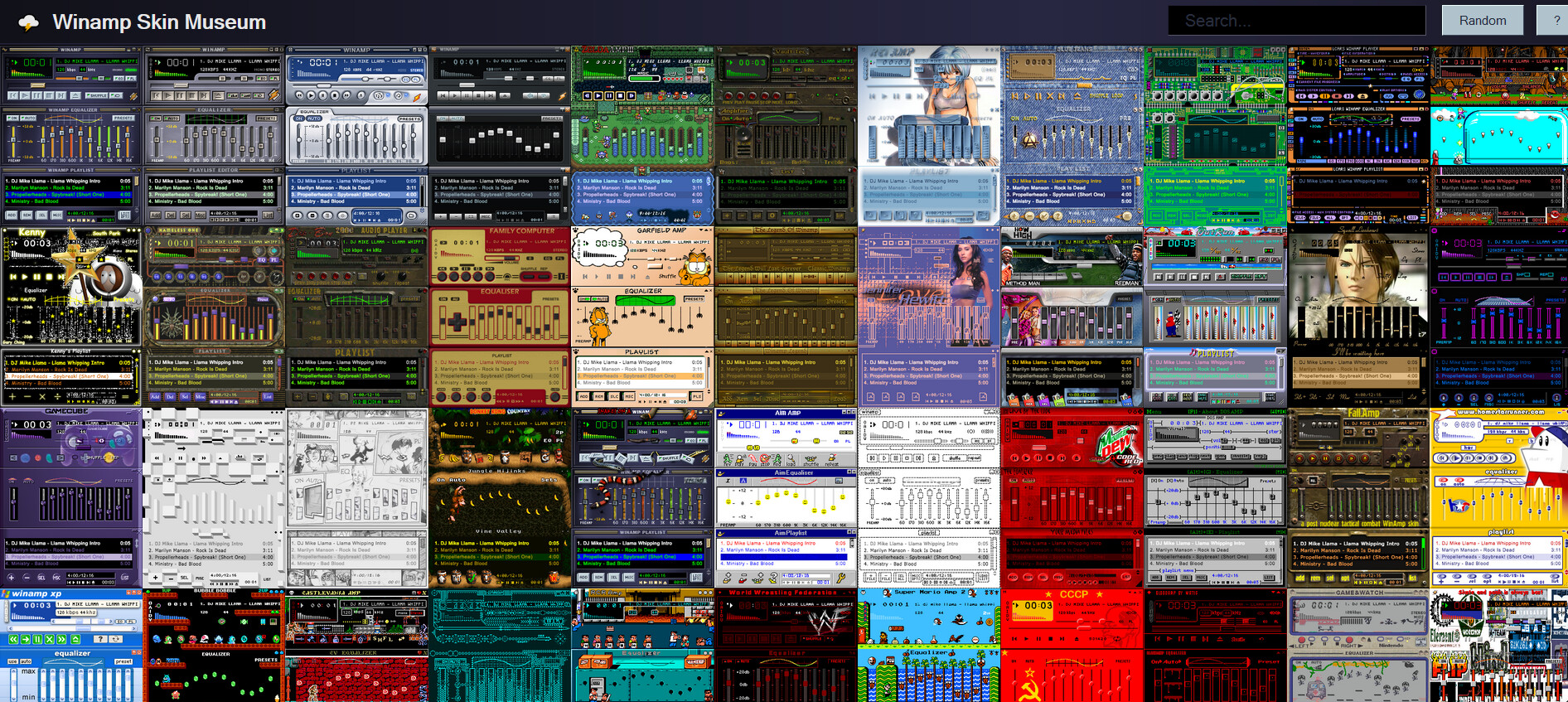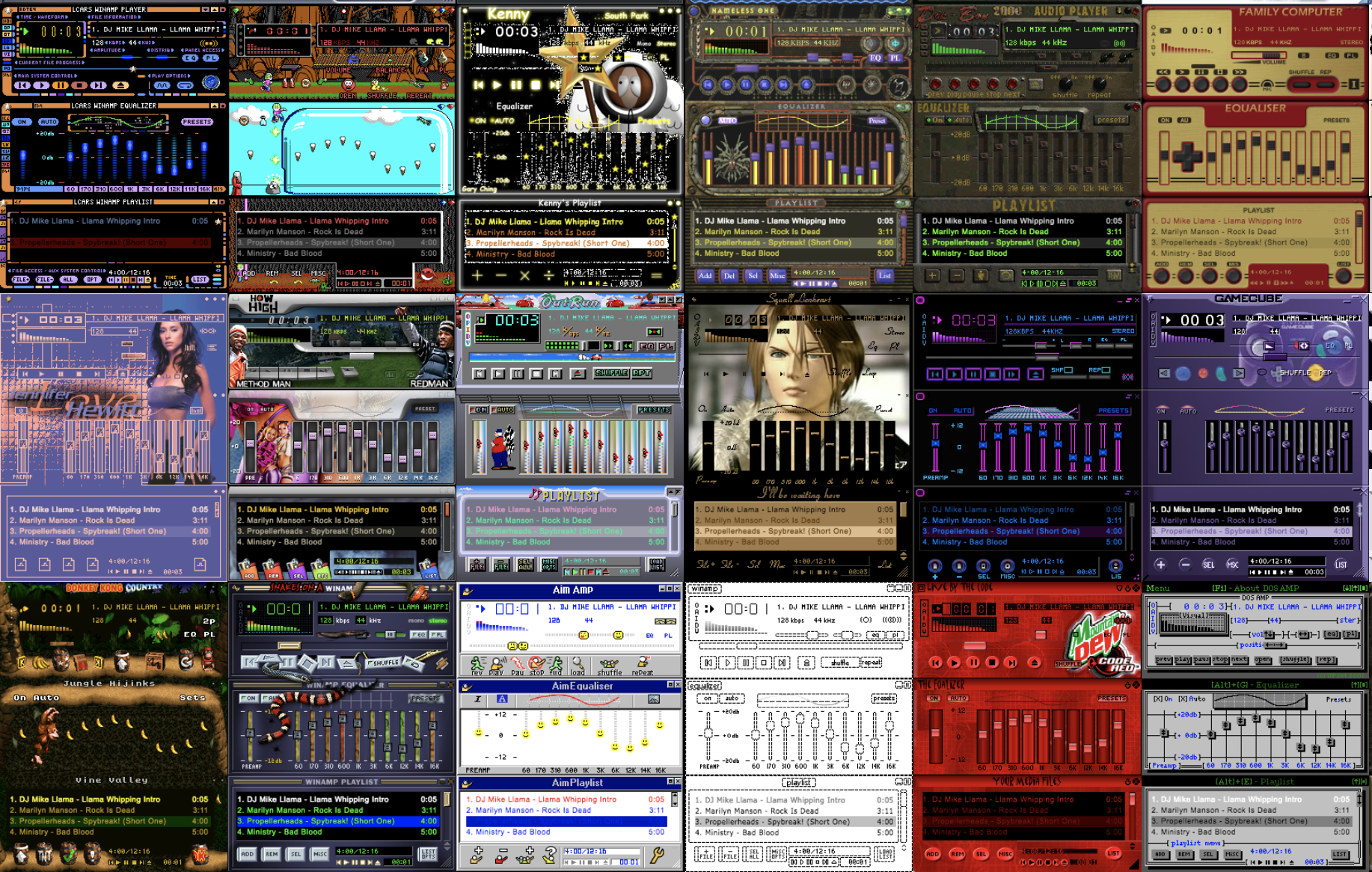. Misc: Winamp Remote is now an installer option (mlorb.dll). Misc: Moved drawing engine out of genff to tataki.dll. Misc: Moved freetype font renderer out of genff to freetype.wac. A leaked version of Winamp 5.8 recently spread over the Internet. Consequently, we have decided to make this new version available to you, revised by us. We therefore recommend that you download this version rather than any other as we guarantee it is safe for you to use.
Making your own customised Winamp skins' is a fairly straightforward procedure. All you need is an image editor such as Photoshop or Paint Shop Pro and the Winamp base skin', which you can download from the Winamp site. The base skin incorporates fifteen bitmaps as well as numerous cursors and a script file that instructs Winamp how to use the various files. Although simple, the process is fairly laborious, and can involve quite a lot of fiddly tweaking and a certain amount of experience to get professional results. If you are willing to give it a go, a full tutorial is available here. If you are not much of a graphic designer, however, don't worry. There is a much easier way to build your own skins using a specialised shareware utility called 'Winamp Skin Maker' (or 'Skinner') that makes the procedure much easier. Skinner can be downloaded from http://members.tripod.com/ajie_g/skinner.htm. This handy little application allows you to work with a variety of template skins that can use a custom image of your own design as the background.
Winamp Menu Font Size
Step 1 - Loading your background image
Fonts Winamp font download for free, in ttf for windows and mac! Fonts Winamp in Standard category. Toggle navigation Fonts101.com. Latest Fonts; 3D (762) Architecture (15) Brandname (2249) Bubble Style (104) Celtic (109) Creepy (456) Curly.
Once you have Skinner installed, load it up and you will be presented with the main window as shown in figure 1. From here, go to the file menu, select 'Open Image', and browse for an image to use from your hard disk (Figure 2). You will notice that there is a drop down menu labelled 'Adjustment Mode'. The default setting is 'Tile', which crops your image to the actual size of a Winamp window. Try the 'Continuous' option to see your image full size (Figure 3). Now click the 'Make Skin!' button to preview your new skin (Figure 4).
Step 2 - Selecting a template
If the default template doesn't look quite right, try out some of the others in the 'Skin Template' menu. You can also download some more templates from the Winamp Skin Maker site. The 'widescreen' template is shown in figure 5.
Step 3 - Setting the font colours
Once you have a template that works well with your image, it's time to fine-tune the colour scheme. In the 'Main Skin' area are two colour selection boxes for the font and background colours. Here you can also specify a name for your skin, which will appear in the title bar at the top. To do this, click the button next to 'Modify Title Text'. You may notice that the colours you choose will not affect all templates, so switch between templates to see the different results.

Below the 'Main Skin' area is the 'Playlist Skin' area, which lets you modify the font and colour scheme to be used in the play list window. See figure 6 for an example.

Step 4 - The visualisation colours
In the main Winamp window, beneath the playback time display, are volume level indicators. You can specify a colour scheme for these as well. To do this, click the 'Tools' button and select 'Visualization Color Editor'. Here you can manually select a range of colours or, for smoother effects, select 'Gradient Fill' in the 'Option' menu (Figure 7). Click 'Apply' to see a preview of your selected colours.
Step 5 - The equaliser colours
Once you're satisfied with the visualisation colours, select 'Equalizer Graph Editor' from the 'Tools' menu to edit the EQ colour scheme. Once again, you have the option of selecting these manually, or creating a smoother effect by using the gradient fill option. Clicking 'Apply' will give you a preview in the main window. The 'OK' button will take you back to the main screen.
Step 6 - Saving your own skin
When all your colours and image settings meet your approval, it's time to export the skin so you can load it up into Winamp. To do this, simply select 'Save ' from the File menu and specify a name (figure 8). By default your skin will be saved into your Winamp skins directory so you can instantly try it out.
Step 7 - Using your skin
Now all you need to do is load up Winamp 2 (that's right, Winamp 3 doesn't support skins you make in Skinner!). Go to the skin browser (Alt-S), select your new skin, and you're done (see Figure 9)!
Advanced options

Once you have made a couple of skins, you may be keen to try making your own buttons and even your own Skinner templates. When making your own buttons, the trick is to position them correctly. This is probably best achieved by starting with a Winamp screen grab. You can use Alt+PrintScreen to copy the active window to the clipboard, which you can then paste into your image editor, ready for modification. If you want to try your hand at making a template, simply copy the contents of one of the existing templates into a new subdirectory in the Skinner template folder. From here you can use these images as a starting point for your new template.
Winamp Font Size
Got a digital audio question? Ask HelpScreen.
More from MSI Australia and New Zealand Gaming Notebook
Winamp Increase Font Size

Winamp Font Thai
Join the newsletter!
